#BeTheChange Public Event: “Cybersecurity Challenges in the Context of Digital Transformation”
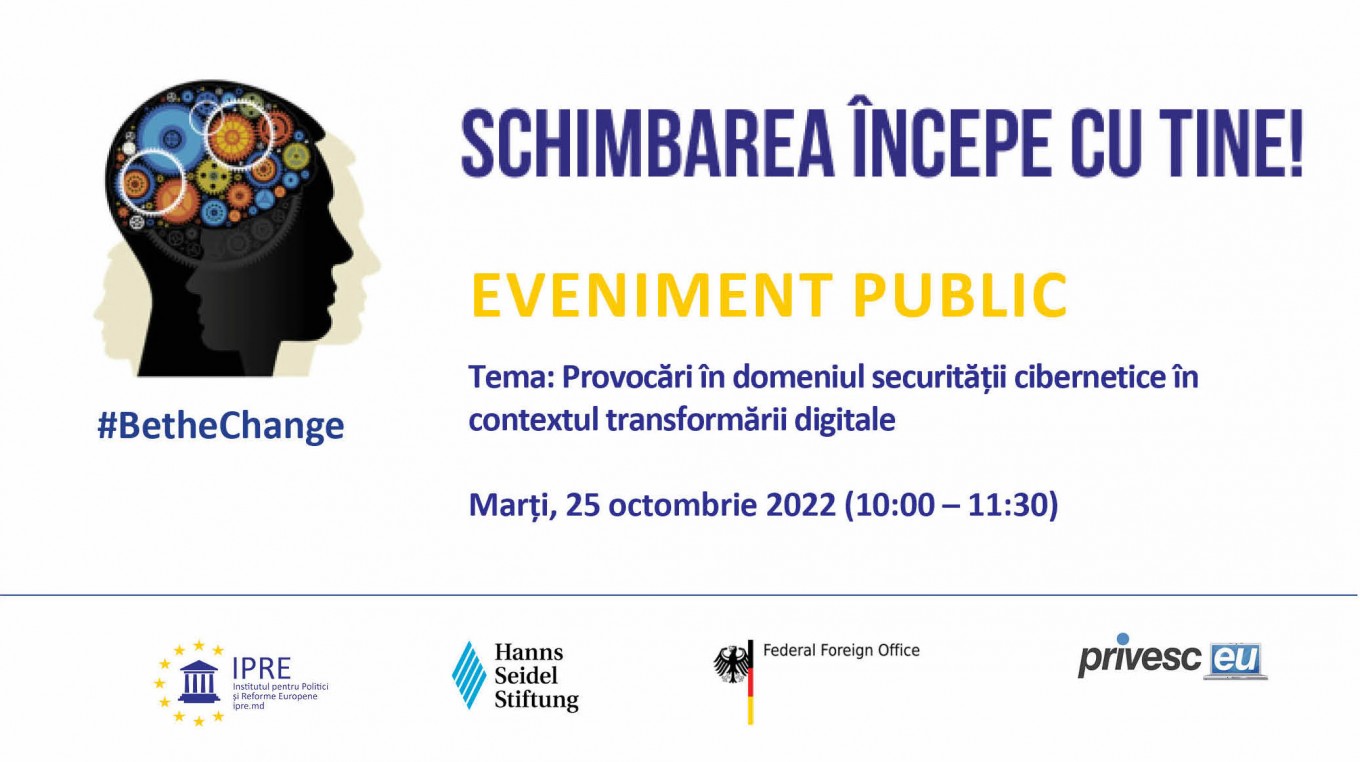
The Institute for European Policies and Reforms (IPRE), with the support offered by the Hanns Seidel Foundation Republic of Moldova and in media partnership with Privesc.Eu, organized on Tuesday, October 25, 2022, the fifth event of this year within the initiative “#BeTheChange: The Change it starts with you!”, dedicated to challenges in the field of cyber security in the context of the digital transformation of the Republic of Moldova.
The guests at the event, which was moderated by Tatiana Colun, intern of the #BetheChange program within IPRE, spoke about the importance and purpose of strengthening the cyber security culture; the national priorities at the level of public institutions in the field of cyber security, as well as the need to increase public awareness of the vulnerabilities generated by computer crime, risks and methods of preventing them.
Next, we propose some of the main interventions of the speakers.
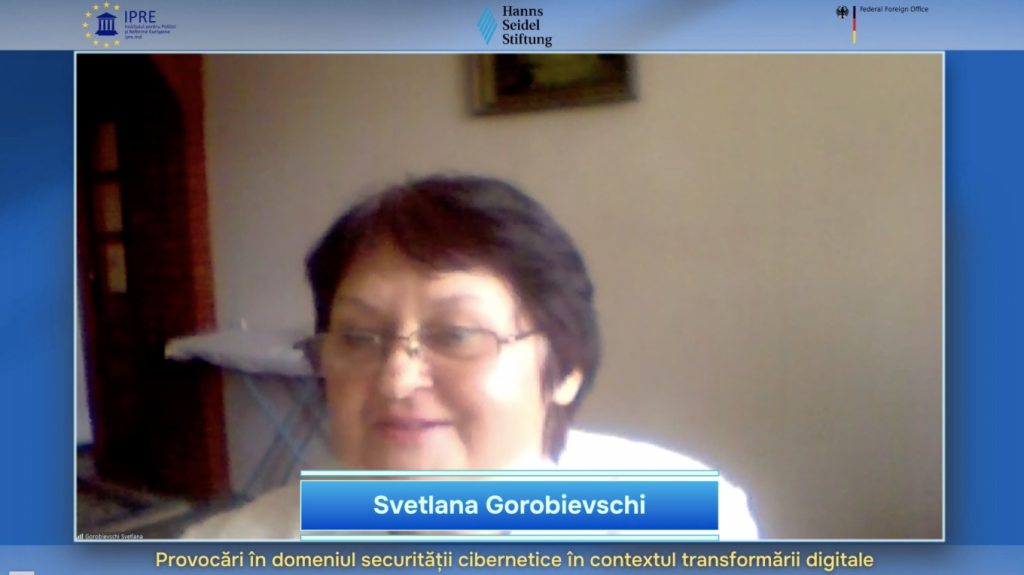
Svetlana Gorobievschi, PhD, university professor, Technical University of Moldova: “Cyber security is a problem of common interest that affects all of us, regardless of social status, education, profession, gender, age, etc. At the same time, it also affects public institutions and thus forces us to develop adequate, fast and efficient public policies. The issue of cyber security is conditioned by several social and political factors, as well as the lack of a security culture. Referring to the security culture, this represents the modern institutional approach, which promotes: the issue of security; knowledge of the types of political, military, economic, social and environmental emergencies; the totality of notions, ideas and information available to the citizens of a state regarding values, interests and national security needs; the way of cultivating certain attitudes, motivations and behaviors necessary for individual, community and state defense and protection against vulnerabilities, risks, threats, dangers or possible attacks. The development of a cyber security culture must be developed by: provoking the interests and concerns of organizations and humanity on cyber security issues, integrating educational programs in the field of cyber security at the level of educational institutions, collaborating with scientific organizations at the national level, disseminating information and personal involvement . Emphasis must also be placed on formal education, scientific research and the integration of security culture in all fields of activity”.
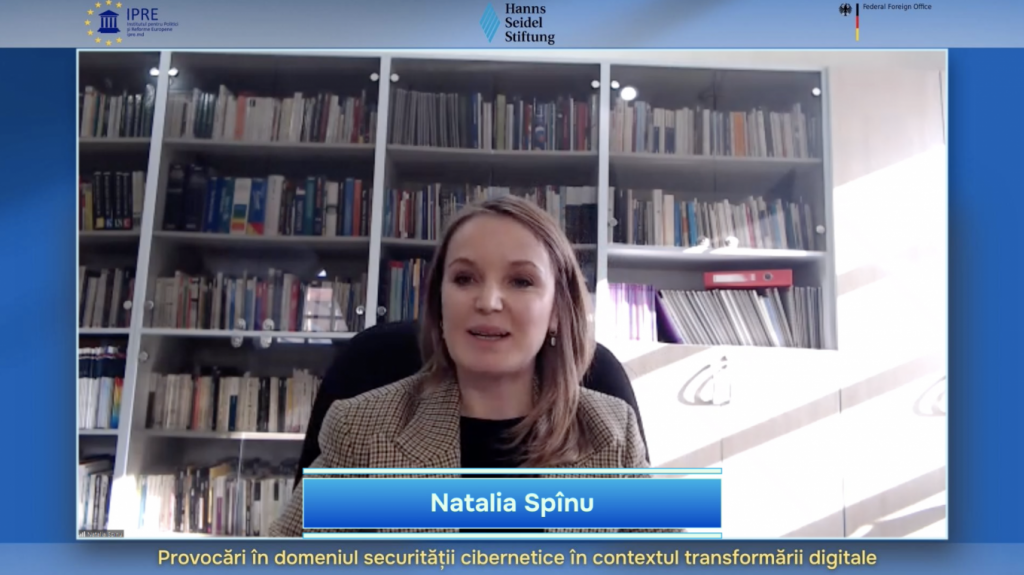
Natalia Spînu, Director of the European Institute of Political Studies from Moldova: “Taking into account the degree of digitization of the services we receive/use, the lack of concrete and effective security measures would lead to blockages with blockages that are hard to imagine, which is why all of us, from ordinary citizens to the governmental level, are obliged to do everything in our power to implement those measures that will protect us both personally and as a people. In order to strengthen cyber security at the level of public institutions, a centralized and uniform approach to this problem, which the institutions are mostly dealing with on their own, is needed. This happens due to the lack of a coherent legislative framework and aligned with legislation and good practices at European level, aspects integrated in other states and which have already generated positive results, which is why this know-how should be implemented at national level . In order for something to work well, it is necessary to appoint responsible people, institutions, departments, people with well-defined roles and responsibilities, measurable performance indicators, not as a theory. It is also necessary for the institutional memory to be ensured, so that personnel changes at the level of institutions do not lead to changes at the level of strategy. In this sense, it is essential to ensure continuity”.
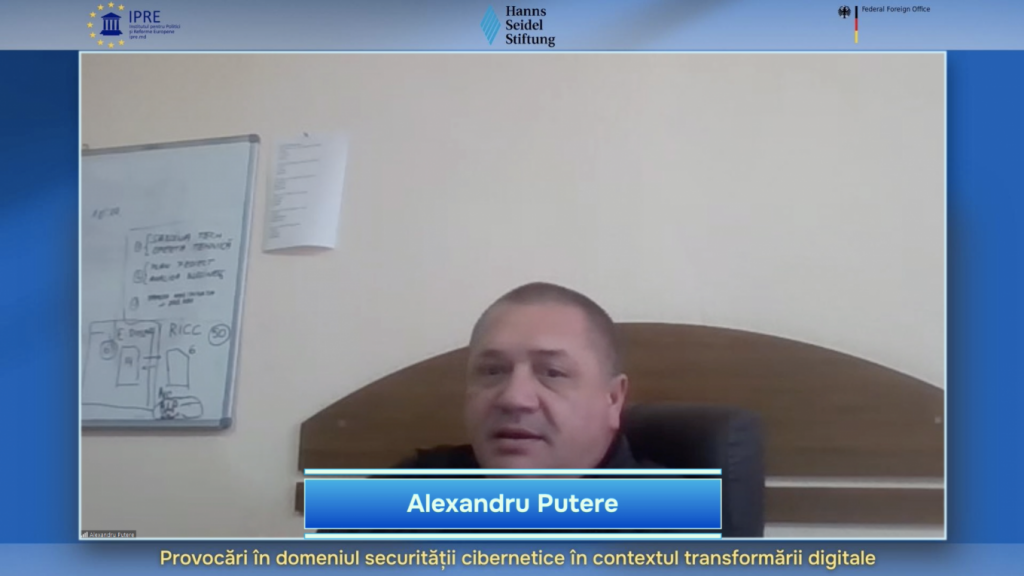
Alexandru Putere, Director of the Information Technologies Service of the Ministry of Internal Affairs:“Based on the most highlighted risks in the context of the war in the neighboring state, a multitude of attempts to “corrupt” national information systems were established. Thus, analyzing the statistics at the national level, as well as at the institutional level, it is revealed that a major risk of vulnerabilities persists, respectively, if individual action is taken at the institution level, at the level of generating protection solutions, it is not possible to submit solutions valid for all institutions. As a result, we support the creation of a “plateau” of activities under the guidance of a national CERT, within which each institution can bring its support and input, especially through the presence of a subdivision that would be responsible for implementing the new protection methods, as well as would ensure risk minimization. All this can be achieved, when there are well-trained employees, as well as there is an ethical behavior in the online space. At the same time, the importance of training, exchange of best practices at national and international level, especially regarding existing soft solutions and adaptable to the budgets of institutions at national level, which would guarantee the efficient activity of the institution, the quality and safety of the services delivered to citizens, is important and relevant”.
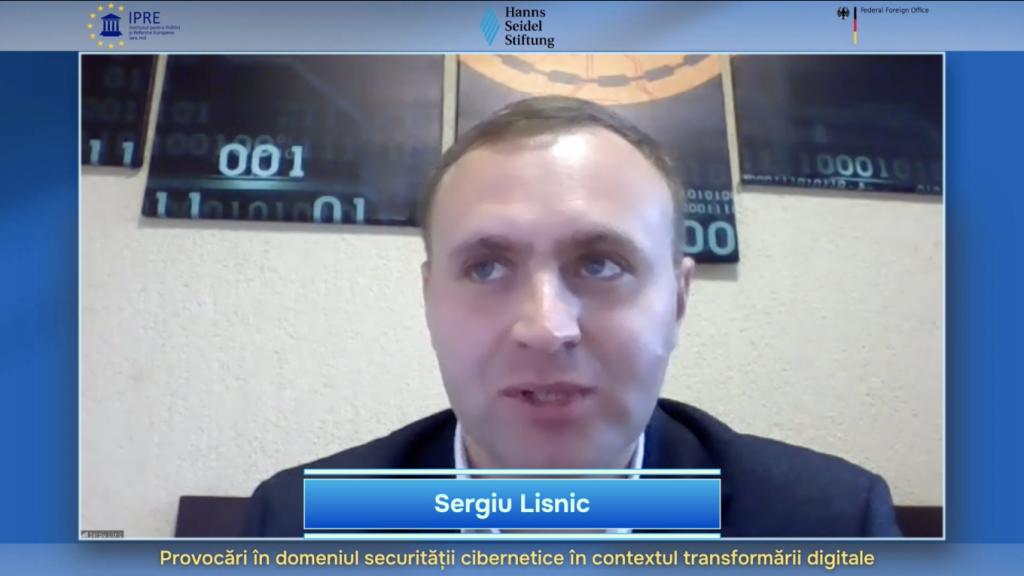
Sergiu Lisnic, Head of Section of the Computer Crimes Investigations Department of the National Investigation Inspectorate of the General Police Inspectorate: “Annually, the Police of the Republic of Moldova registers over 1000 informational and related crimes. These crimes are aimed at identity theft, theft from bank cards, hacking of personal accounts, blackmail committed with affecting computer systems and encrypting the information held on them or aggression in the online environment. Thus, in order for citizens to know more information, further efforts are made to prevent cybercrimes, by informing the population about vulnerable areas, precautionary measures and where they can turn to file a complaint. At the same time, thematic workshops are organized for teachers, school psychologists and parents in promoting children’s safety in the online environment, and police officers are permanently trained on new trends and crimes committed in the online environment, as well as measures to investigate and combat them. Although awareness of how to report cybercrime in some European countries is weaker than others, and there is currently no national platform on reporting all types of cybercrime, efforts are being made to educate citizens on the necessary protocols to to be followed in case of cybercrime, in this sense reference is made to the informational portals internetsigur.md and siguronline.md, which appeared thanks to the initiatives of the La Strada International Center”.
For more details, you can watch the video recording of the event on privesc.eu here.
The event was organized by trainees participating in the #StagiuIPRE2022 program within the IPRE project “Change starts with you! – #BetheChange: Youth for the Europeanization of the Republic of Moldova”, implemented in cooperation with the Hanns Seidel Foundation in the Republic of Moldova and with the financial support of the Federal Ministry of Foreign Affairs of Germany.

